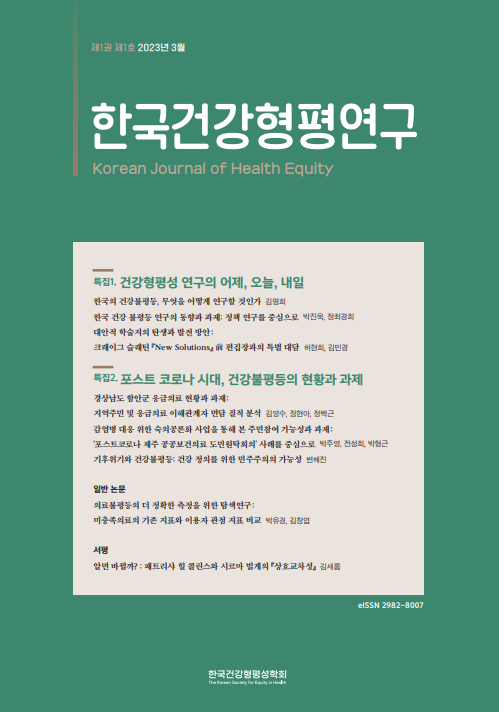- KOREAN
- E-ISSN2982-8007
 E-ISSN : 2982-8007
E-ISSN : 2982-8007
Role of Social Power during Public Health Crisis : Experiences of Korean COVID-19 Human Rights Network

Korean COVID-19 Human Rights Network
Abstract
The tension between infectious disease policy and human rights has long been a topic in academia. During the COVID-19 pandemic in South Korea, this debate resurfaced. The COVID-19 Human Rights Network was formed as advocates for human rights during public health crises. In this article, the network defines itself as a social power seeking changes in the dominant discourse of infection control. It attempts to analyze the network’s activities using Eric Olin Wright’s three transformative models. Summarizing the network’s actions as a social power during the public health crisis, the article examines similarities and differences with disruptive, interstitial, and symbiotic transformative strategies. The analysis indicates that the COVID-19 Human Rights Network has implemented both disruptive and symbiotic transformative strategies. While employing various practical strategies on the ground, it did not significantly impact the dominant discourse. However, the network self-validated the presence of social power during the public health crisis in South Korea.
- keywords
- COVID-19, Human rights, Infectious disease, Public health crisis, Social power
- Submission Date
- 2024-01-17
- Revised Date
- 2024-02-14
- Accepted Date
- 2024-02-14
- Downloaded
- Viewed
- 0KCI Citations
- 0WOS Citations

